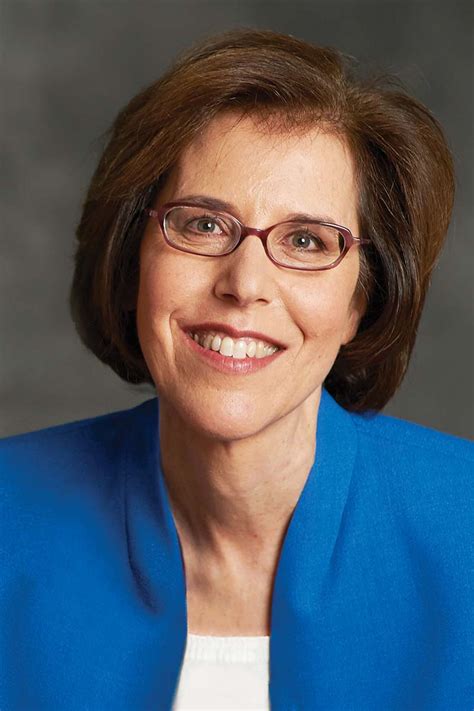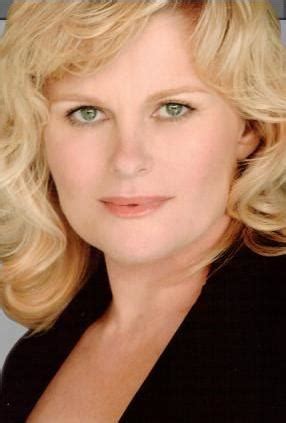Top 916 Patients Quotes & Sayings - Page 16
Explore popular Patients quotes.
Last updated on November 21, 2024.
The risk of developing carcinoma of the lung increases steadily as the amount smoked increases. If the risk among non-smokers is taken as unity and the resulting ratios in the three age groups in which a large number of patients were interviewed (ages 45 to 74) are averaged, the relative risks become 6, 19, 26, 49, and 65 when the number of cigarettes smoked a day are 3, 10, 20, 35, and, say, 60-that is, the mid-points of each smoking group. In other words, on the admittedly speculative assumptions we have made, the risk seems to vary in approximately simple proportion with the amount smoked.
One of my patients told me that when she tried to tell her story people often interrupted her to tell her that they once had something just like that happen to them. Subtly her pain became a story about themselves. Eventually she stopped talking to most people. It was just too lonely. We connect through listening. When we interrupt what someone is saying to let them know that we understand, we move the focus of attention to ourselves. When we listen, they know we care. Many people with cancer talk about the relief of having someone just listen.
The analytic psychotherapist thus has a threefold battle to wage -- in his own mind against the forces which seek to drag him down from the analytic level; outside the analysis, against opponents who dispute the importance he attaches to the sexual instinctual forces and hinder him from making use of them in his scientific technique; and inside the analysis, against his patients, who at first behave like opponents but later on reveal the overvaluation of sexual life which dominates them, and who try to make him captive to their socially untamed passion.
I talked to over two hundred patients and family members about their experiences with aging, serious illnesses, and the big unfixables. But I also spoke with scores of physicians, and especially geriatricians, palliative care doctors, hospice nurses, and nursing home workers. The biggest thing I found was that when these clinicians were at their best, they were recognizing that people had priorities besides merely living longer. The most important and reliable way that we can understand what people's priorities are, besides just living longer, is to simply ask. And we don't ask.
One young woman's tribute describes unwrapping her cadaver's hands and being brought up short by the realization that the nails were painted pink. "The pictures in the anatomy atlas did not show nail polish", she wrote. "Did you choose the color? Did you think that I would see it? I wanted to tell you about the inside of your hands. I want you to know you are always there when I see patients. When I palpate an abdomen, yours are the organs I imagine. When I listen to a heart, I recall holding your heart.
The good things at the U.S. health care system are that we have a well-trained labor force, particularly physicians; I don't think any nation trains doctors better. We have the latest technology, simply because we throw so much money at it. We are really technology-hungry in this country. That's a good thing. Our system more treats patients like customers, which is a good thing; that it's very customer-friendly. And it's very innovative, both in the products we use, in the techniques we use and the organizational structures we use. Those are all very good things, highly competitive.
Treatment Plans and Interventions for Depression and Anxiety Disorders provides clinicians with essential guidelines to treat patients in the era of managed care. Seven psychiatric disorders are described and conceptualized in cognitive-behavioral terms. The authors then provided an unusually clear, reader-friendly description of how to assess and treat each disorder with illustrative case examples, and patient forms and handouts. It should prove very useful for clinicians or clinicians-in-training who want to learn how to conduct short-term treatment through an empirically validated approach.
We are all so bent and determined to get what we want, we miss the lessons that could be learned from life's experiences. Many of my AIDS patients discovered that the last year of their lives was by far their best. Many have said they wouldn't have traded the rich quality of that last year of life for a healthier body. Sadly, it is only when tragedy strikes that most of us begin attending to the deeper aspects of life. It is only then that we attempt to go beyond surface concerns-what we look like, how much money we make, and so forth-to discover what's really important.
One study on the treatment of asthma patients conducted by researchers John Goyeche, Dr. Ago, and Dr. Ikemi, suggests that any effective treatment should address suppressed emotions-such as anxiety and self-image-as well as the physical dimension. To achieve this, they encourage correction of poor posture, and helping the person relax the irrelevant respiratory muscles while restoring full diaphragmatic breathing. They also recommended finding ways for getting rid of excess mucus. The good news is that a well rounded breath practice will do all these things.
Once you start to ask patients about their priorities, you discover what they're living for. Once you uncover that, it helps you, as a doctor, decide what to fight for. And when we do that, we often end up identifying limits to the kind of care that people want. One's assumption is that these people are going to live shorter lives, but what we're doing is protecting quality of life. In doing so, you sometimes end up helping people live longer. Certainly, you help people live better days and with more purpose in their lives.
Mythologies were the earliest dreams of mankind, and in the psychotic delusions of his patients, Jung believed he was encountering those dreams again. Freud, too, believed that the psyche retained archaic vestiges, remnants of our earlier mental world. But for Freud these were a burden we were forced to repress. Jung instead would see them as a reservoir of vital energy, a source of meaning and power from which, through the over-development of our rational minds, modern mankind has become divorced.
Nurses have new and expanding roles. They are case managers, helping patients navigate the maze of health care choices and develop plans of care. They are patient educators who focus on preventative care in a multitude of settings outside hospitals. And they are leaders, always identifying ways for their practice to improve. Because nurses have the most direct patient care, they have much influence on serious treatment decisions. It is a very high stakes job. Everyone wants the best nurse for the job, and that equates to the best educated nurse.
I think different societies, cultures, individuals, teams of people, make the world a better place. The founding fathers, they made New England, they made those 13 colonies. I don't know if they thought they were changing the world or just changing their world, but they did make the world a better place. Doctors that cure patients or cure diseases or make discoveries, they're making the world a better place. Can I make the world a better place by selling underpants? Not really. That's just the means. That gives me resources to try to make the world a better place.
At a time when Democratic leaders are pushing rationed care in a world of limited resources, Americans might wonder where the call for shared sacrifice is from illegal immigrant patients like those in Los Angeles getting free liver and kidney transplants at UCLA Medical Center. 'I'm just mad,' illegal alien Jose Lopez told the Los Angeles Times last year after receiving two taxpayer-subsidized liver transplants while impatiently awaiting approval for state health insurance.
Daisy smiled and said, "Jay Berry, you won't die. You may think you will, but you won't. In a day or two, you'll be as good as new, I hope." "You're just saying that because you heard Papa say it," I said. "No, I'm not!" Daisy said. "I'm saying it because I'm a nurse, and nurses are supposed to cheer up their patients." I knew all too well that once Daisy had gotten into one of her Red Cross nursing spells, it was ridiculous to even think of trying to argue her out of it. So I just groaned, closed my eyes, and sat there while
Billy had a framed prayer on his office wall which expressed his method for keeping going, even though he was unenthusiastic about living. A lot of patients who saw the prayer on Billy’s wall told him that it helped them to keep going, too. It went like this: “God grant me the serenity to accept the things I cannot change, courage to change the things I can, and wisdom always to tell the difference.” Among the things Billy Pilgrim could not change were the past, the present, and the future.














